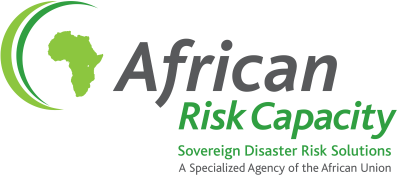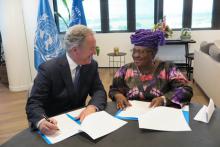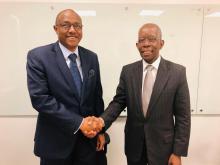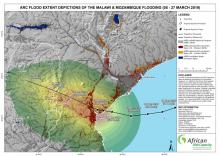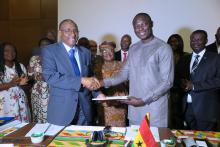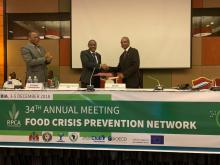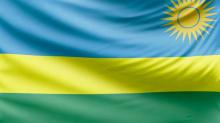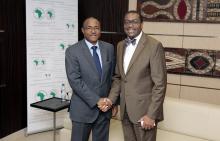World Food Programme and African Risk Capacity Extend Administrative Service Agreement Till 2024
Friday, May 24, 2019
World Food Programme and African Risk Capacity Extends Administrative Service Agreement Till 2024.
“The provision of support by the WFP through the Agreement has been very critical to our success, and we hope that within the next 5-year period of its operation, ARC would have grown into a fully independent institution.” – Ngozi Okonjo-Iweala.
